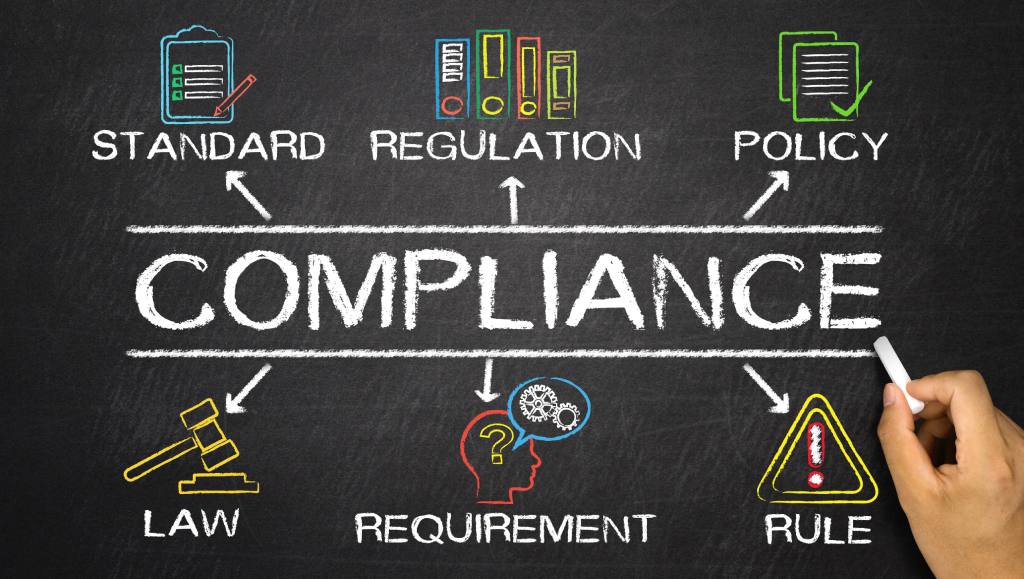The fintech sector is growing worldwide at a rapid pace. Entrepreneurs are taking advantage of this sector’s opportunities to attract customers and disrupt the commercial and investment banking industry. However, the fintech sector does not have robust AML & regulatory compliance, Fraud Detection & Prevention and information security programs like banks, attracting the attention of government regulators.
However, this situation is changing. Fintechs are doing more to protect their customers’ accounts and financial information. In addition, regulatory bodies are developing laws and regulations to protect the industry from fraud and other information security concerns. A fintech company can face serious consequences if they do not follow these new laws and regulations.
Some of the consequences include:
- Legal action against the fintechs
- Restrictions from the regulator that can hurt a fintech’s profits and prevent it from reaching its financial goals
- Reputational damage and a loss of customer confidence
Here are various ways fintech institutions can manage the rise of regulatory compliance in this industry.
Fintech Regulations in Different Regions
Various government agencies worldwide are struggling to keep up with the high-speed technological advancement in the fintech sector. Unfortunately, many countries do not have laws and regulations to monitor the fintech sector, which leaves this sector susceptible to fraudulent activities, money laundering, and other financial crimes. Yet, a few countries have regulations, so it is important to know these regulations to stay in compliance.
These jurisdictions include:
The United States – The Bank Secrecy Act (BSA) and the Anti-Money Laundering Act of 2020, which amends the BSA, mandates fintechs to report all suspicious financial activities. These regulations also mandate fintech companies to develop risk-mitigation programs to prevent money laundering and terrorism funding. The United States also has the Gramm-Leach Bliley Act (GLBA), which requires all fintechs to disclose how they share customer information.
The United Kingdom – The UK does not have a unified system of laws and regulators for the fintech sector. The UK’s only regulation is the Financial Conduct Authority, which regulates how all businesses and lending companies operate when conducting online payments.
The European Union – The EU is working to modernize the fintech regulatory system to manage the growth in this sector. Currently, the EU has the European Securities and Markets Authority (ESMA) that oversees investments in the fintech sector.
Switzerland – The Swiss government fully supports the fintech sector. It uses the Financial Market Supervisory Authority (FINMA) as its primary regulator.
How to Make Your Fintech Company Compliant with Regulations
There are several ways you can make your fintech company compliant with regulations. However, you must keep in mind that regulations continue to develop as the fintech sector grows. The actions to make your fintech company compliant with regulations include:
Seek Legal Counsel
The first thing you need to do is ask for legal advice about complex compliance issues. The regulations in the fintech ecosystem are relatively new and prone to be revised in short periods. So, you should look for a legal advisor who is experienced in financial regulations, preferably fintech. Therefore, seek an attorney who can advise you on fintech requirements and how to stay in compliance.
Consider the Services You Provide and How You Collect User Information
Governments do not have a unified legal framework for fintech compliance. Therefore, a fintech company must work on a case-by-case basis regarding licensing and compliance. You may need multiple licenses to remain compliant, depending on regulations. You may also need multiple licenses to perform certain functions, such as transferring money, creating e-wallets, dealing in cryptocurrencies, and offering securities.
Another sensitive factor is the collection and storage of the data obtained from the users. Any fintech should be compliant with not only GDPR but also regional data protection acts if needed.
Creating and Implementing Anti-Money Laundering Procedures
You should create and implement anti-money laundering policies on the first day. These policies will protect your business and your customers. Well-functioning and regulatory compliant AML procedures are also obliged by regulatory bodies in licensing processes.
Build a Scalable Compliance Program
Your fintech company must have a compliance program that keeps up with regulations and transaction volume changes. For example, an increase in transaction volume means you may need to change your reporting and disputing processes. This situation will require you to have a compliance officer whose sole duty is to manage these compliance issues.
The Role of Chief Risk and Compliance Officers
Managing business operational risks and governmental regulatory compliance have different characteristics and management styles. You need to take a predictive and proactive approach to risk and a reactive and prescriptive approach to compliance issues.
A Chief Risk Officer can use their skills to create proactive policies recognizing financial crimes, potential risks and rectifying the problems. In addition, they can ensure that these policies are in line with regulatory compliance. The Chief Risk Officer must stay updated on the latest technologies and business practices while looking out for regulatory, competitive, and technical risks.
The Chief Compliance Officer ensures the fintech company complies with governmental regulatory agencies. They also work with the Chief Risk Officer to help them with a large amount of compliance information as the fintech industry grows. In addition, they can train employees on how to comply with regulatory policies, monitor and evaluate compliance practices within the company, and investigate compliance violations.
Planning for Better Adaptability
The rapid growth of the fintech sector requires your fintech institution to adapt to the regulatory changes in the industry. Your company must also be at the forefront of preventing criminals from taking advantage of loopholes in the fraud and anti-money laundering policies.
How Can EMBank Help?
European Merchant Bank (EMBank) is a fintech-friendly challenger bank that can help fintech institutions expand their services in this expanding market. EMBank can advise fintech institutions on leveraging embedded finance technology to provide customer-centric financial solutions.
Established in Lithuania and licensed by the European Central Bank, EMBank provides a Banking as a Service offering, combined with Safeguarding Account, Business Account, and Accumulative Account types as well as payment options through SEPA, Swift, and Target2.
Please keep in mind that the above information has been prepared or assembled by the EMBank and is intended for informational purposes only. Some of the information may be dated and may not reflect the most current legal developments.
Please send an email to [email protected] to arrange a telephone call.




